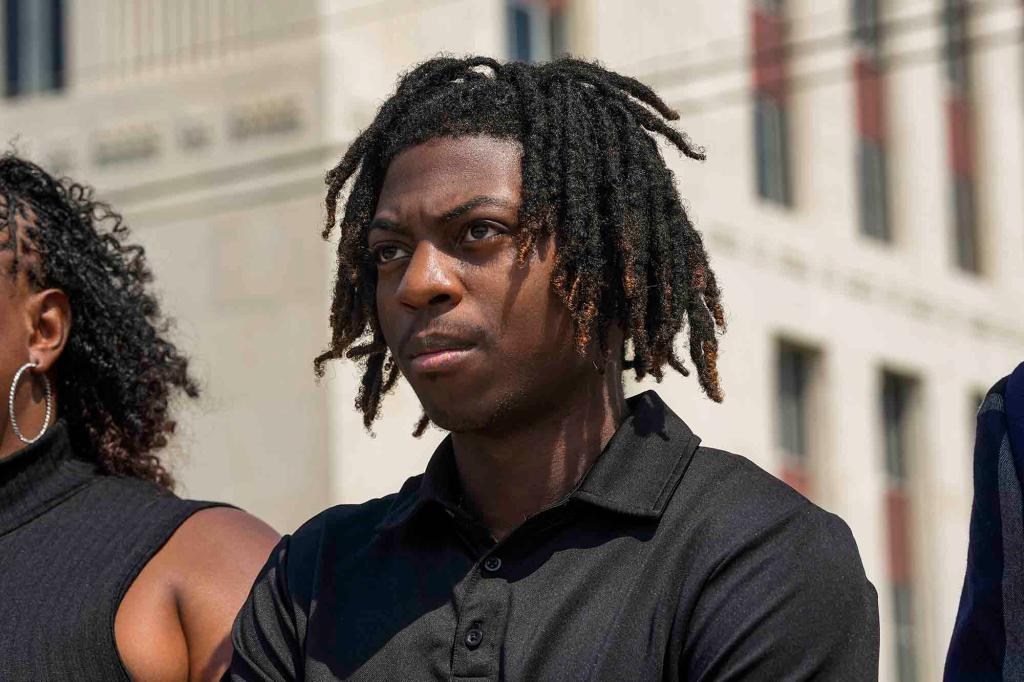A federal judge in Texas denied a request from a black high school student, Darryl George, for a court order that would have allowed him to return to his high school without being punished for his hairstyle. George had left his Houston-area high school in the Barbers Hill school district at the start of his senior year due to concerns about facing additional punishment for his hair. The district officials had punished George for not cutting his hair, leading to him serving in-school suspension for most of his junior year.
The school district argued that George’s hairstyle violated its policy because it would fall below his shirt collar, eyebrows, or earlobes if let down. George, who wears his hair tied and twisted in locs on top of his head, had asked the court for a temporary restraining order to prevent further punishment while a federal lawsuit he filed proceeded. However, the judge denied his request, stating that George and his lawyers had waited too long to ask for the order, and the district was more likely to prevail in the remaining gender discrimination claim of the lawsuit.
In August, the judge had dismissed most of the claims in George’s federal lawsuit, leaving only the gender discrimination claim to stand. The ruling denying the temporary restraining order happened to be issued on George’s birthday, as he turned 19 years old that day. His lawyer had stated that George transferred to another high school in a different district after suffering a nervous breakdown over the thought of facing more punishment at Barbers Hill High School. The school district’s defense of its dress code included policies meant to teach grooming and hygiene, instill discipline, prevent disruption, avoid safety hazards, and teach respect for authority.
George’s federal lawsuit also alleged that his punishment violated the CROWN Act, a recent state law that prohibits race-based discrimination of hair. This law, effective in September 2023, prevents employers and schools from penalizing individuals because of hair texture or protective hairstyles such as Afros, braids, locs, twists, or Bantu knots. However, a state judge ruled in a lawsuit filed by the school district in February that the punishment did not violate the CROWN Act. Despite George’s efforts to seek a court order to prevent further punishment over his hairstyle, the judge’s ruling denied his request based on procedural reasons and the school district’s likelihood of prevailing in the lawsuit.
Overall, the case involving Darryl George’s hairstyle and the school district’s policies highlighted the ongoing debate around discrimination based on hair and grooming standards in educational institutions. While the CROWN Act addresses this issue by prohibiting race-based discrimination of hairstyles, legal challenges and interpretations of existing policies continue to affect students like George. Despite the denial of the temporary restraining order, the underlying allegations of racial and gender discrimination towards George serve as a reminder of the importance of addressing these issues in educational environments to ensure equity and inclusion for all students.


